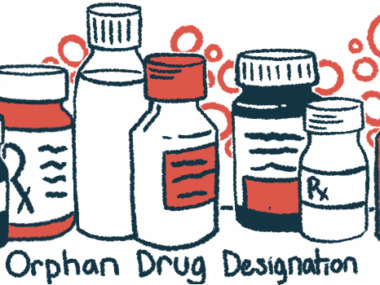Immune Therapy AO-176 Awarded FDA’s Orphan Drug Designation
Written by |

The U.S. Food and Drug Administration (FDA) has granted orphan drug status to Arch Oncology‘s experimental immune-modulating therapy AO-176 as a potential treatment for relapsed or refractory multiple myeloma.
This designation, given to therapies with the potential to improve care for conditions that affect fewer than 200,000 people in the U.S., qualifies Arch, as the therapy’s developer, for regulatory support and certain financial incentives. Orphan drugs qualify for seven years of market exclusivity in the country if the therapy is ultimately approved.
Arch is currently conducting a Phase 1/2 clinical trial (NCT04445701) testing AO-176 in relapsing or refractory (treatment-resistant) multiple myeloma. The trial is set to enroll about 102 adults whose myeloma has progressed despite at least three prior lines of therapy.
The Phase 1 portion will test multiple doses of the experimental therapy, with the aim of evaluating safety and dose-limiting toxicities. Data from the Phase 1 part will inform the recommended dosing in Phase 2, which will test AO-176 in combination with Velcade (bortezomib) and the steroid dexamethasone.
“Multiple myeloma is a type of hematological cancer affecting about 35,000 individuals each year in the US. There is currently no cure for multiple myeloma, and while first-line treatment may result in remission, there remains a significant unmet need for patients with r/r MM [relapsed or refractory multiple myeloma],” Amit Agarwal, MD, PhD, Arch’s senior vice president of clinical development, said in a press release.
AO-176 is a monoclonal antibody that is designed to increase the immune system’s ability to fight cancer cells by blocking the activity of a protein called CD47. While immune cells macrophages are normally able to “eat,” or phagocytize, cancerous cells, the CD47 protein can bind to receptors on macrophages and send a “don’t eat me” signal. Many tumors express high levels of this protein to help them escape immune surveillance.
By blocking CD47, AO-176 is expected to allow macrophages to more effectively eliminate tumor cells. The therapy also is thought to directly trigger a form of inflammatory cell death, called programmed cell death, in cancer cells.
According to Arch, AO-176 may have a better safety and efficacy profile compared with other agents in its class. Of note, the therapy does not bind to most normal cells, including red blood cells, even though these cells normally express high levels of CD47.
The therapy also binds to CD47 better under acidic conditions. That is expected to help it target the tumor microenvironment, which usually is acidic.
“We believe the multiple unique properties of AO-176, including lower binding to normal cells and negligible binding to red blood cells, enhanced binding to CD47 in acidic environments found in tumors, and induction of programmed and immunogenic cell death, in addition to strong preclinical data in multiple myeloma, could make AO-176 a promising new first-in-class therapeutic approach to improving outcomes for these patients,” Agarwal said.
Arch also is sponsoring a separate Phase 1/2 study testing AO-176 in advanced solid tumors (NCT03834948).




